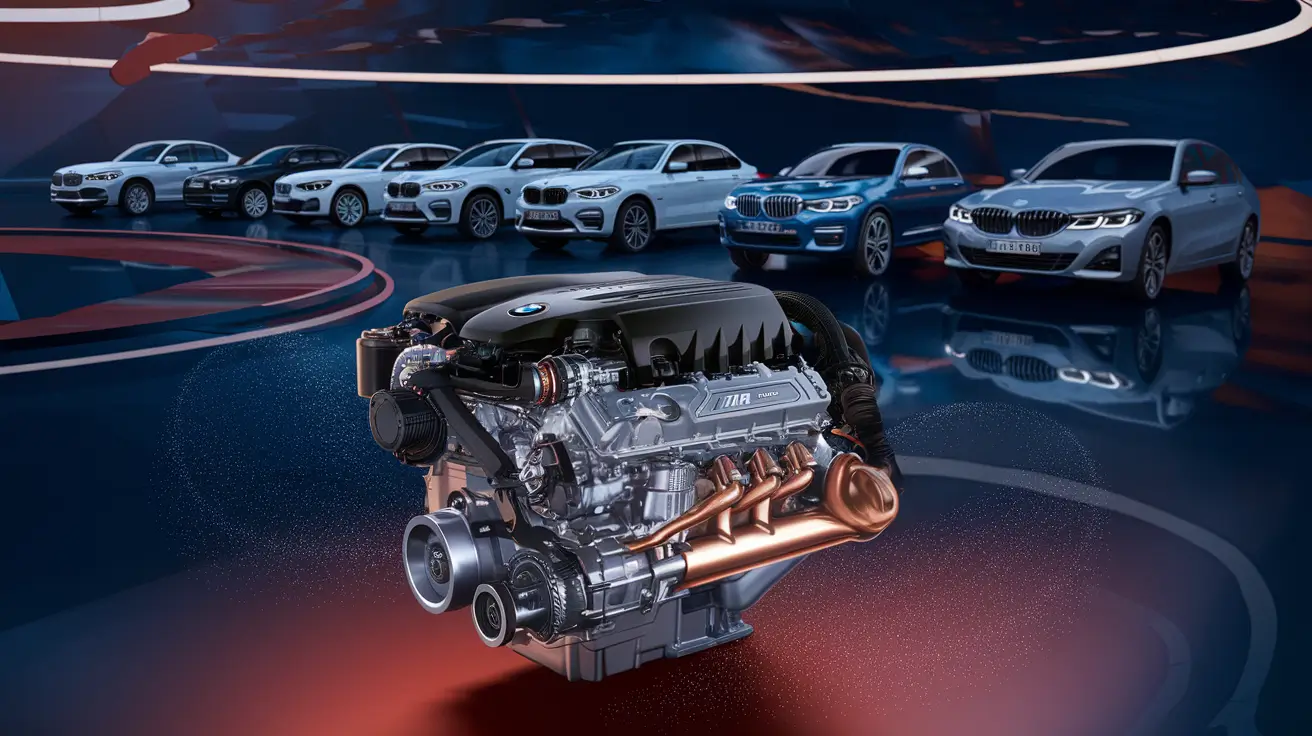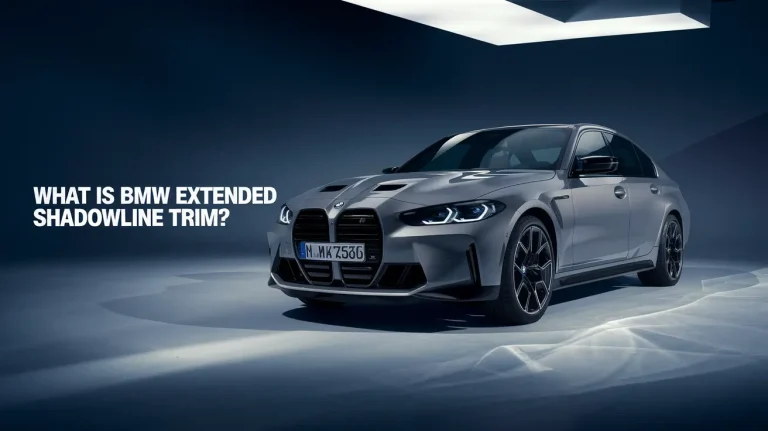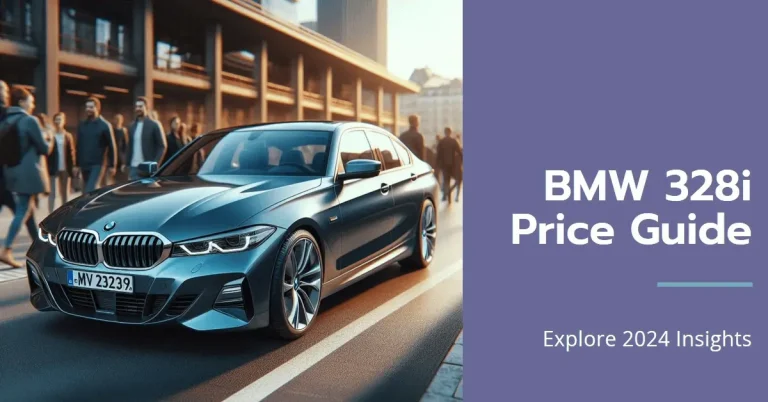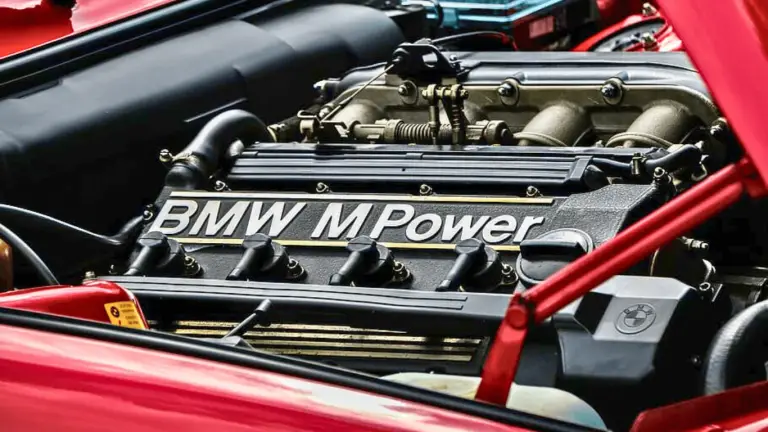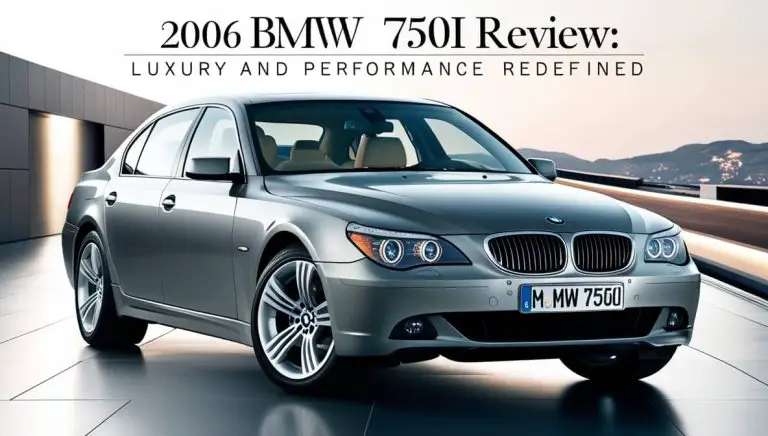Why Did BMW Make So Many 4 Cylinders Now?
BMW has been using four-cylinder engines for over 50 years. These engines are now a big part of the modern Bmw lineup. Most Bmw cars today have four-cylinder engines, showing their importance to the brand.
The move from inline-six engines to more four-cylinder engines is interesting. It shows a big change in Bmw’s engine choices. This change is worth looking into, focusing on Bmw’s four-cylinder engines and their role in today’s cars.
Bmw chose four-cylinder engines for good reasons. They are more efficient and cost-effective. By using 2.0-liter and 3.0-liter engines in the 3 Series, Bmw saves money. This makes Bmw cars more affordable and competitive.
This strategy has helped four-cylinder engines become common in cars. Bmw’s four-cylinder engines are a big part of their plan to stay ahead in the market.
BMW’s Strategic Shift to 4-Cylinder Engines
BMW is now focusing on four-cylinder engines to meet new market demands. This change aims to boost fuel efficiency and cut down on emissions. It also keeps BMW’s reputation for performance and innovation intact. The company offers a variety of engine options to meet customer needs and follow the latest trends.
Market Demands and Consumer Preferences
Consumer preferences have greatly influenced the automotive market. People are now more interested in eco-friendly vehicles due to environmental concerns. BMW has added more fuel-efficient options, like four-cylinder engines, to its lineup. This move is expected to increase sales and keep BMW competitive.
Global Automotive Industry Trends
The global auto industry is moving towards electric and hybrid vehicles. Yet, four-cylinder engines remain popular. BMW is focusing on these engines to take advantage of this trend. The company is investing in research to make its four-cylinder engines more efficient and powerful.
Competition Analysis
The auto market is very competitive, with many players vying for a share. BMW’s rivals, like Mercedes and Audi, are also turning to four-cylinder engines. BMW is highlighting its commitment to innovation and performance. Its four-cylinder engines aim to offer a unique driving experience while meeting modern customer demands.
| Engine Type | Fuel Efficiency | Emissions |
|---|---|---|
| Four-Cylinder | Improved | Reduced |
| Six-Cylinder | Lower | Higher |
Performance Capabilities of BMW 4-Cylinder Models
BMW’s latest four-cylinder engines have changed the game in the car world. The N20 and B48 engines can beat many of BMW’s old V8s and turbo six-cylinder engines. This shows how far engine tech has come, making smaller engines just as good or better.
The N20 engine came out in 2011, and the B48 engine is also impressive. The new BMW X1 xDrive28i has a 2.0L gas engine with BMW TwinPower turbo tech. It makes 245HP and 350Nm of torque. This engine beats the 2.0T FSI engine from Audi/VW, with about 34 HP more. It goes from 0-60MPH in 6.1 seconds, faster than the Audi at 6.4 seconds.
Key features of the BMW 4-Cylinder engine include:
- Boost pressure of 1.2 bar (17.4 psi)
- Compression ratio of 10.0
- Redline at 7000 rpm
- Output of 180kW/245bhp at 5000 rpm
- Torque of 350Nm at 1250 rpm
These features help the engine perform amazingly well. It’s a great choice for drivers who want power and efficiency. With BMW’s four-cylinder engines and modern tech, drivers get a fun drive without hurting the environment or their wallet.
Environmental Regulations and Emission Standards
Stricter environmental rules have forced car makers, like BMW, to make engines more efficient. They are working on new engines, including gasoline and diesel, to meet future emissions standards. BMW wants to cut CO2 emissions a lot in their new engines and follow global emission laws.
BMW is trying to keep cars fast while being good for the planet. They are working hard to make electric cars as good as gas cars in terms of performance and price. This is by improving electric motors, power electronics, and batteries.
European Union Guidelines
The European Union has strict rules for car emissions that BMW must follow. They are making engines more efficient and adding electric options to meet these standards.
US Environmental Protection Agency Requirements
In the US, the Environmental Protection Agency (EPA) has strict rules for businesses in polluted areas. BMW must follow these rules, which is pushing them to cut emissions and meet standards.
Global Carbon Reduction Goals
BMW aims to lower its carbon footprint and meet global carbon goals. They are working on more efficient engines and electric options to reach this goal. This is part of BMW’s commitment to environmental compliance.
Fuel Economy Benefits of 4-Cylinder BMW Engines
BMW’s four-cylinder engines are known for their fuel efficiency. They use less fuel than bigger engines, like six-cylinder or V8 ones. This makes them a great choice for those who care about BMW fuel efficiency and want to help the environment.
Some of the key benefits of four-cylinder engines include:
- Better four-cylinder fuel economy, which means lower costs over time
- Lower carbon emissions, making them better for the planet
- Improved reliability and durability, which means fewer repairs
Compared to six-cylinder engines, four-cylinder ones save on fuel. But, six-cylinder engines give more power and performance. So, the choice between a four-cylinder and six-cylinder engine depends on what you need and want.
| Engine Type | Fuel Economy (mpg) | Carbon Emissions |
|---|---|---|
| Four-cylinder | 25-30 | Lower |
| Six-cylinder | 20-25 | Higher |
In summary, BMW’s four-cylinder engines are a smart choice. They offer good performance, fuel efficiency, and reliability. This makes them a favorite among those who value BMW fuel efficiency and four-cylinder fuel economy.
Advanced Engineering Technologies
BMW is all about innovation, and it shows in its four-cylinder engines. The company has made big strides in engine technology. This has led to better performance and efficiency. The TwinPower Turbo system is a big part of this success.
TwinPower Turbo System
The TwinPower Turbo system is a key part of BMW’s engine tech. It boosts power while cutting down on fuel use. With a twin-scroll turbocharger, BMW’s engines are more powerful and efficient.
Direct Injection Innovations
BMW’s direct injection tech also boosts engine performance. Fuel is injected directly into the combustion chamber. This leads to better power and lower emissions. Together with TwinPower Turbo, BMW’s engines are top-notch.
| Engine Type | Power Output | Fuel Consumption |
|---|---|---|
| BMW 4-Cylinder Engine with TwinPower Turbo | Up to 320 horsepower | Up to 30% reduction in fuel consumption |
BMW’s advanced tech, like TwinPower Turbo and direct injection, makes its four-cylinder engines stand out. This focus on innovation keeps BMW at the forefront of driving dynamics and efficiency.
Cost Benefits for Manufacturers and Consumers
BMW’s use of four-cylinder engines has cut down production costs. This is good for both the company and those who buy its cars. The design of these engines allows for shared parts, lowering costs. This could mean cheaper prices for BMW cars, reaching more people.
Some big pluses of lower production costs are:
- Less money spent on making each car because of fewer parts
- Better fuel use, saving money for drivers
- Lower prices for buyers, making BMWs more competitive
The table below shows how less money spent on making cars can help:
| Engine Type | Production Cost | Consumer Pricing |
|---|---|---|
| Four-cylinder | Lower | Competitive |
| Three-cylinder | Lower | Affordable |
| Six-cylinder | Higher | Premium |
By cutting down on production costs, BMW can keep its high-end image. At the same time, it makes its cars more affordable for more people.
Consumer Reception and Market Performance
BMW’s move to four-cylinder engines has won over many customers. Most BMWs sold today use these engines. This change has boosted BMW sales, as people love the mix of sportiness, elegance, and comfort in cars like the 3-series sedans.
BMW has focused on keeping customers happy, even with smaller engines. Reports show that simpler models, like the 3-series, are reliable. This has helped keep customer satisfaction high.
Sales Data Analysis
Looking at sales data, BMW’s four-cylinder models are doing great. Here are some important points:
- BMW sales figures have gone up thanks to the four-cylinder models.
- Customer satisfaction is good, with a focus on reliability and performance.
- The 3-series sedans are a hit, with customers loving their sportiness, elegance, and comfort.
Customer Feedback Overview
Customers generally like BMW’s four-cylinder models, praising their performance and reliability. But, some worry about the reliability of used BMWs and the high cost of repairs. Despite these issues, BMW remains a favorite among car lovers. Its four-cylinder models are key to its success.
| Model | Engine Type | Sales Figures | Customer Satisfaction |
|---|---|---|---|
| 3-series | Four-cylinder | High | Positive |
| Other models | Four-cylinder | Increasing | Generally positive |
BMW 4-Cylinder Models Comparison
Four-cylinder engines are key in the BMW lineup, blending power with fuel efficiency. Models like the 3 Series, 5 Series, and X3 showcase these engines. Introduced in 2016, the B-series engines have been updated in 2018 and 2020, boosting their performance.
Power Output Specifications
The power of BMW’s four-cylinder engines ranges from 248 to 261 horsepower. This is thanks to the 2.0-liter turbocharged engine. While six-cylinder engines have more power, four-cylinder models save on fuel. For example, the 330i gets 26 mpg in the city and 36 mpg on the highway.
Price Point Analysis
Four-cylinder BMW models are more budget-friendly than their six-cylinder peers. The 3 Series starts at $41,000 for the 320i, and the 330i at $51,000. The X3 begins at $43,000 for the sDrive30i. Here’s a table comparing prices and power outputs:
| Model | Price | Power Output |
|---|---|---|
| 320i | $41,000 | 248 horsepower |
| 330i | $51,000 | 261 horsepower |
| X3 sDrive30i | $43,000 | 248 horsepower |
In summary, BMW’s four-cylinder models are a great mix of power, efficiency, and affordability. They are perfect for those seeking a balance in the BMW lineup.
Conclusion
BMW’s move to 4-cylinder engines shows their dedication to innovation and the environment. The N20 engine is a great example of their success. It offers great performance and meets the industry’s changing needs.
BMW is leading the way in the automotive industry trends with its engine development and electric powertrains. Their work in electric cars through the BMW i sub-brand is exciting. BMW is ready to meet the needs of drivers everywhere with their 4-cylinder engines and electric cars.

